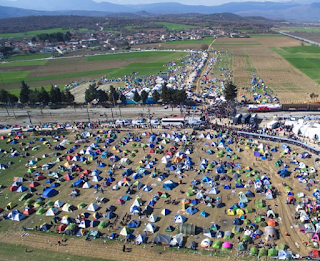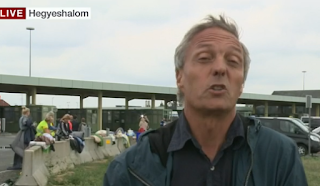I first began listening to From Our Own Correspondent in my late teens, back in the '80s, and I rarely missed it for years.
I liked the stories, from places familiar and unfamiliar, and I liked the way the BBC's storytellers told their stories, and I also liked learning facts about places, and the history and politics of those places, and FOOC was useful for that.
I liked the stories, from places familiar and unfamiliar, and I liked the way the BBC's storytellers told their stories, and I also liked learning facts about places, and the history and politics of those places, and FOOC was useful for that.
I wasn't much troubled by questions of bias back then.
Nowadays, however, I'm a much less frequent listener and questions of bias are (as you probably know) somewhat less far from my mind, so I have to ask - if any of you have an opinion on the matter - if you think the programme has changed as much as I think it's changed in recent years? Or is it me that's changed?
Take today's edition, for example.
Standing back and looking at it as objectively as I can, I can see that it still features BBC journalists who can certainly tell a good story in a stylish fashion. Today's programme included three such people: Lyse Doucet, Nick Thorpe (a master of prose) and Gabriel Gatehouse.
Lyse Doucet's piece concerned the silent Yazidi villages of Iraq. It was powerful stuff, full of compassion, and it made me feel for the Yazidis (though, that said, I've long been sympathetic to them ever since Islamic State being persecuting them and have believed from the very start that they are the sort of refugees we should be protecting and giving refuge to). Its authoritative staccato style of delivery felt very familiar too, following (as it does) in a long FOOC tradition of that kind of delivery. (Perhaps cynically, it brought to mind Chris Morris's On the Hour/The Day Today and its satire of the language and style of war reporting). Maybe, however it was more emotive than FOOC pieces of old and less fact-focused.
Then came the rest of the pieces - a piece about Catholic sexual abuse in Chile which pretty much gave, in passing, a free pass to (liberal favourite) Pope Francis (Linda Pressly); a feminist piece about India (Vivienne Nunis); a piece from Colombia which somehow turned into a piece about indigenous peoples being spot-on about climate change (Nick Thorpe); and a piece from Sweden which equated the trolls of Scandinavian legend with supporters of the Sweden Democrats and racism (Gabriel Gatehouse) - and I just groaned.
It's like being repeatedly hit over the head with a very biased wet haddock.
Has this kind of agenda-pushing always been a part of FOOC or is it a recent thing?
It's like being repeatedly hit over the head with a very biased wet haddock.
Has this kind of agenda-pushing always been a part of FOOC or is it a recent thing?















